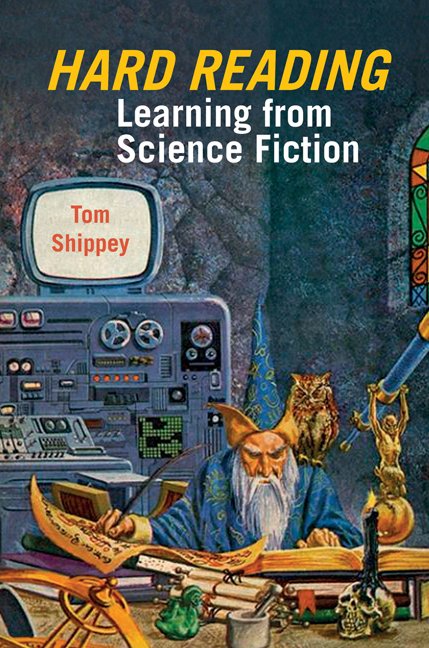3 - Getting Away from the Facilior Lectio
from What SF Is
Summary
This essay, like the last, arose from an Eaton science fiction conference, but the circumstances were very different. In 1992, the conference took place in Leeds, and I was the organiser as Johnny-on-the-spot, with (the late) George Slusser, of University of California-Riverside, handling the American end, providing some funds, and arranging later publication. The theme was ‘cyberpunk and the future of narrative’. Organising the conference at Leeds was a misery. There was a university Conference Officer, who was supposed to ‘facilitate’ conferences, but his real concern was to cover his own salary, and if possible make a profit for the university, by screwing as much money out of the conference as possible. So the university overcharged for everything on its premises, and forbade anything off its premises, which led to all sorts of trouble, ruffled feathers, etc. This paper accordingly arose out of a disaster, and a contretemps.
The disaster – only a disaster in academic terms, it is true – was this. It was my first encounter with the American conference format of three 20-minute papers in a 90-minute session. I now realise, as I had not then, that this is so set in stone as to have become a ritual. I had, however, twigged that Americans expect you actually to read a paper, not just talk from notes like the British do, and think anything else is bad form. (This, by the way, is a mistake: most papers at US academic conferences are read at machine-gun speed to fit the time-scale, in convoluted written syntax, which the ear cannot take in, and frequently delivered in a monotone to the reader's top shirt-button. The important thing is that the paper shall have been read, not that anyone should understand it.) Just the same, I duly typed out a paper, got to my session in a thoroughly frazzled state, hauled the paper out of my briefcase – and discovered it was just blank sheets, as I had picked up the wrong pile of paper. I delivered it anyway, since I knew what I meant to say, and it was called something like ‘Echoes of Ancient Epic in Contemporary SF’.
- Type
- Chapter
- Information
- Hard Reading: Learning from Science Fiction , pp. 47 - 64Publisher: Liverpool University PressPrint publication year: 2016



